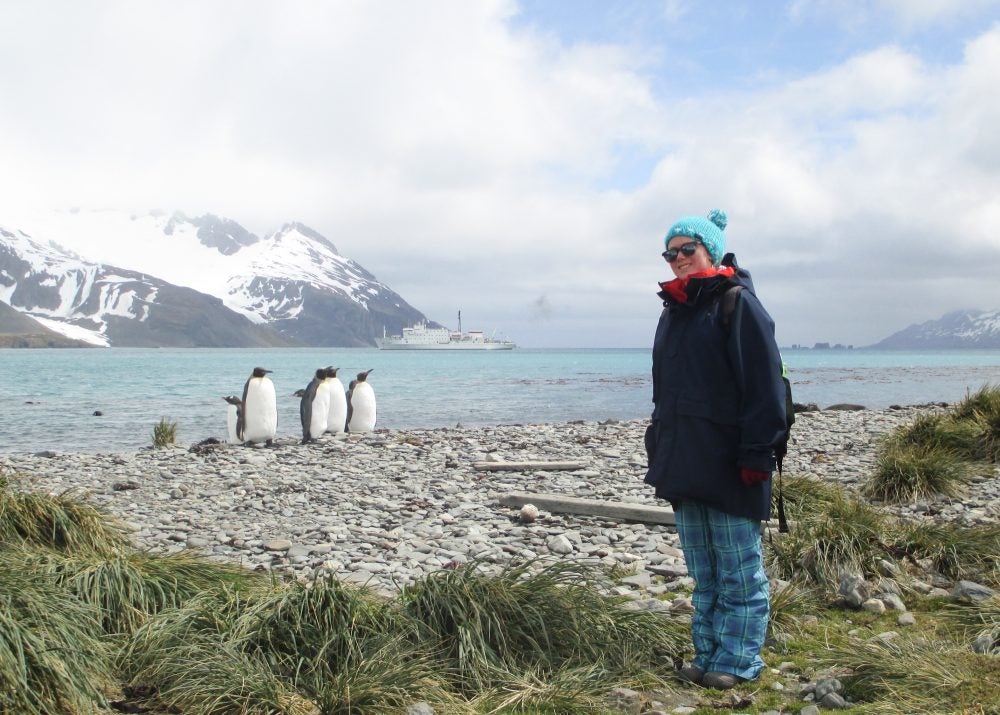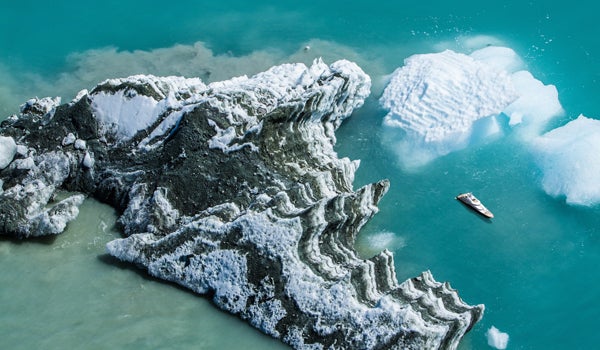
When U.S. Coast Guard veteran Briana “Breezy” Grenier ’17 graduated last year with a B.S. in geology and geological oceanography, she found herself with an overqualification quandary.
A boat captain and longtime ocean explorer, Grenier, 30, grew up in Connecticut and now splits her land time between Portsmouth and Block Island, R.I. But at pretty much any moment, she’d rather be at sea. She’s been remarkably creative at making that happen—specializing in deep-sea and polar exploration and doing four years of military service before coming to URI—which means she’s logged too many hours on many licenses to qualify for the sort of jobs available to new graduates.
No matter. Grenier’s resourcefulness will take her to the Arctic—again—this August, as a member of the Sedna Epic Expedition, an all-female, multi-year project that will pair an international team of ocean professionals with Inuit communities to study climate change. They’ll achieve this in part by snorkeling and scuba diving in the High Arctic—aiming for a world-record 3,000 km snorkel relay of the newly ice-free Northwest Passage in 2020.
How does anyone prepare for that? In Grenier’s case, she’s a compulsive autodidact. Her latest job is as a boat training captain in Boston harbor, but she’s been on research projects from New Zealand to the Marshall Islands with institutions as various as the Geological Society of America, NOAA, and SEA Semester. She’s trained as a scientific diver, ice diver, and technical diver; she’s given ocean science and exploration talks to a Russian ecotourism expedition to the North Pole. “I don’t sleep a lot, so I’m often applying for research projects or crazy opportunities in the middle of the night,” Grenier explains. A Facebook posting led her to Sedna.
Grenier has been spending time this spring getting her body acclimated to cold temperatures as well as fundraising for the dry suits, snorkel gear, and remote-operated vehicles Sedna will leave with Inuit villages as part of its educational mission. “The water only gets so cold,” she shrugs.
“I believe we acquire the most knowledge while traveling, and we barely know the ocean—only five percent of it has been explored. The age of discovery is not over.”
Breezy Grenier '17

